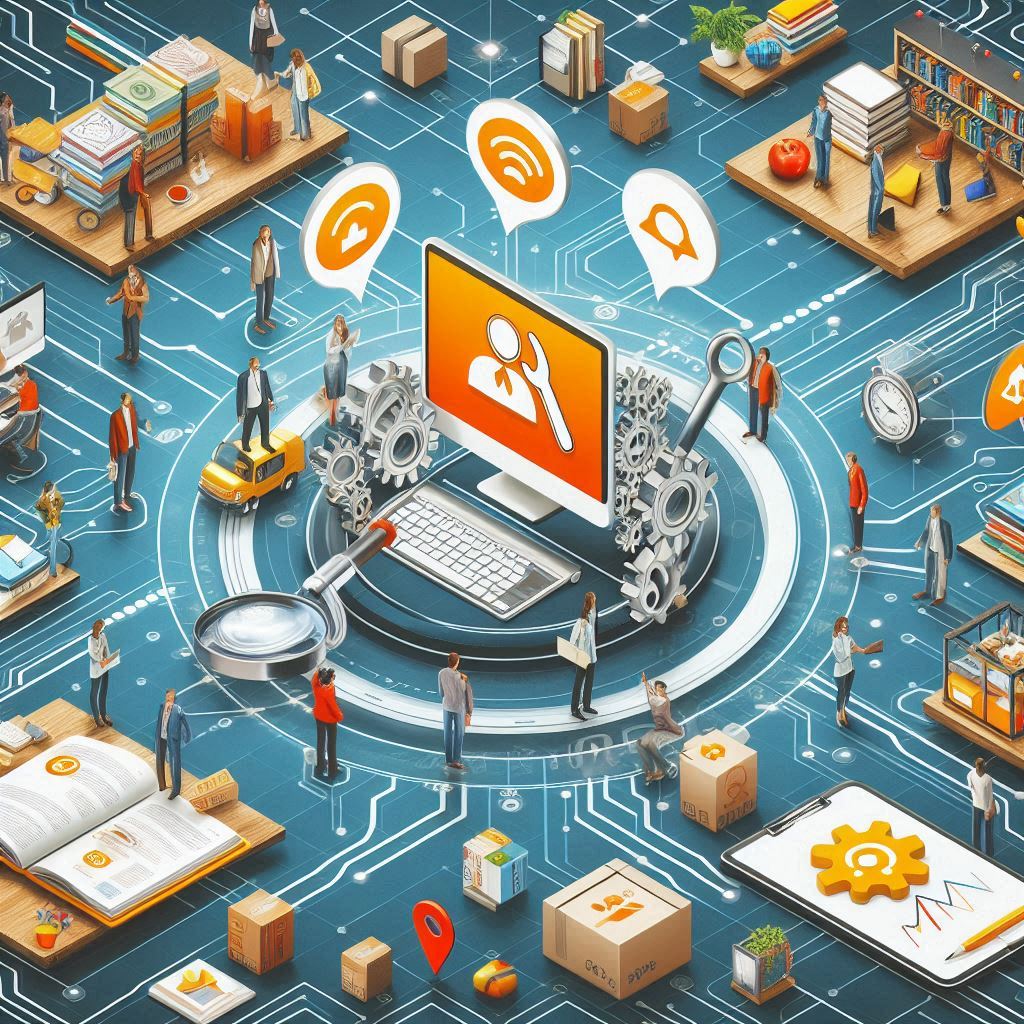The Benefits of Integrating Help Desks with Software Applications
In today’s digital landscape, effective customer support is essential for maintaining user satisfaction and loyalty. Integrating help desks with software applications can significantly enhance the overall customer experience, streamline operations, and improve communication between users and support teams. In this blog, we will explore the numerous benefits of integrating help desks with software applications and how this synergy can drive business success.
1. Centralized Communication
Integrating help desks with software applications centralizes all customer interactions into one platform, eliminating the need for users to switch between multiple tools.
Benefits:
- Improved Efficiency: Support agents can access customer information and history quickly, enabling them to respond to inquiries faster and more effectively.
- Consistent Communication: Centralized communication ensures that customers receive consistent and accurate information, reducing confusion and miscommunication.
2. Enhanced Customer Experience
A seamless integration between help desks and software applications enhances the overall customer experience by providing users with easy access to support resources.
Benefits:
- Self-Service Options: Integrated help desks can offer self-service options, such as FAQs and knowledge bases, allowing customers to find answers independently.
- Faster Response Times: With integrated systems, support teams can respond to queries more rapidly, resulting in shorter wait times and increased customer satisfaction.
3. Automated Ticket Management
Integration allows for automated ticket management, streamlining the process of logging and tracking customer issues.
Benefits:
- Increased Productivity: Automation reduces the time spent on manual ticket entry, allowing support agents to focus on resolving issues rather than administrative tasks.
- Prioritization of Issues: Automated systems can categorize and prioritize tickets based on urgency, ensuring that critical issues are addressed promptly.
4. Comprehensive Customer Insights
Integrating help desks with software applications provides support teams with valuable insights into customer behavior and preferences.
Benefits:
- Data-Driven Decisions: Access to customer data allows teams to make informed decisions regarding support strategies and product improvements.
- Personalized Support: Support agents can tailor their responses based on customer history and preferences, leading to a more personalized experience.
5. Improved Collaboration
Integration fosters better collaboration between different teams, such as support, development, and sales, by providing a unified view of customer interactions.
Benefits:
- Cross-Functional Communication: Teams can share information and insights easily, facilitating collaboration on complex issues that require input from multiple departments.
- Faster Resolution: Improved collaboration leads to quicker problem-solving, as teams can work together to address customer concerns.
6. Scalability and Flexibility
Integrated help desk solutions are often more scalable and flexible than standalone systems, allowing businesses to adapt to changing customer needs.
Benefits:
- Easier Onboarding: New team members can quickly get up to speed with an integrated system, reducing training time and improving overall team efficiency.
- Adaptation to Growth: As a business expands, integrated help desk solutions can grow with it, accommodating increased support demands without sacrificing quality.
7. Enhanced Reporting and Analytics
Integration provides access to comprehensive reporting and analytics tools, allowing businesses to monitor performance and identify areas for improvement.
Benefits:
- Performance Metrics: Businesses can track key performance indicators (KPIs), such as response times and resolution rates, to evaluate support effectiveness.
- Identifying Trends: Analytics can help identify recurring issues and trends, enabling businesses to proactively address common problems and enhance their products or services.
8. Integration with Other Tools
Integrated help desks can seamlessly connect with other business tools, such as CRM systems, project management software, and marketing platforms.
Benefits:
- Holistic View: This integration provides a holistic view of customer interactions across different touchpoints, enhancing overall customer relationship management.
- Streamlined Workflows: By connecting help desks with other tools, businesses can create streamlined workflows that reduce manual data entry and improve overall efficiency.
9. Increased Customer Loyalty
A seamless and efficient customer support experience fosters loyalty and encourages customers to continue using a company’s products or services.
Benefits:
- Customer Retention: Satisfied customers are more likely to remain loyal to a brand, leading to increased retention rates and long-term profitability.
- Positive Word-of-Mouth: Happy customers are more likely to recommend a brand to others, driving new business through positive word-of-mouth marketing.
10. Proactive Support
Integrating help desks with software applications allows for proactive support strategies, enabling businesses to identify and address potential issues before they escalate.
Benefits:
- Predictive Analytics: By analyzing customer data, businesses can anticipate common issues and proactively address them, improving customer satisfaction.
- Continuous Improvement: Proactive support strategies allow businesses to continuously improve their products and services based on customer feedback and insights.
Conclusion
Integrating help desks with software applications offers numerous benefits that can significantly enhance customer support and overall business performance. From centralized communication and improved collaboration to comprehensive customer insights and proactive support, the advantages of integration are clear. As businesses continue to navigate the complexities of customer support in the digital age, investing in integrated help desk solutions will be crucial for maintaining customer satisfaction and driving long-term success. Ultimately, an integrated approach not only benefits customers but also empowers support teams to deliver exceptional service and foster loyalty in an increasingly competitive marketplace.












